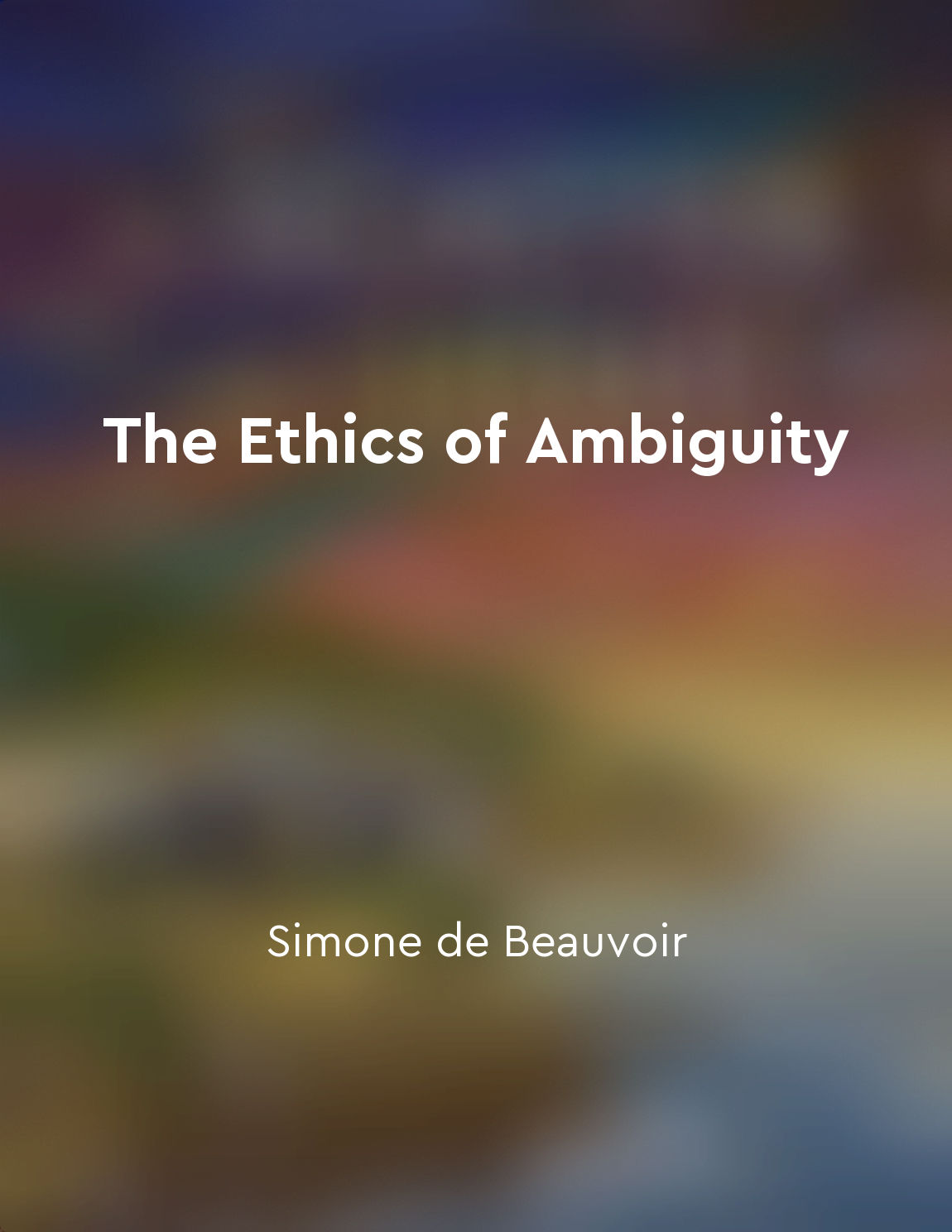Humans have a duty to cultivate their moral capacities from "summary" of THE CRITIQUE OF PRACTICAL REASON by Immanuel Kant
Humans are endowed with the capacity for moral reasoning, a gift that sets them apart from other creatures on earth. This moral capacity is not merely a passive trait but a duty that must be actively cultivated and developed. Kant argues that humans have a responsibility to nurture their moral capacities through deliberate reflection, self-examination, and ethical practice. In cultivating their moral capacities, humans are called to exercise their autonomy and act in accordance with the dictates of reason. This involves making decisions based on universal moral principles rather than self-interest or mere inclination. By cultivating their moral capacities, humans can align their actions with the moral law, which is grounded in reason and demands obedience from all rational beings. Furthermore, cultivating moral capacities enables humans to transcend their individual desires and inclinations, and act in a way that is consistent with the dignity and worth of their rational nature. This cultivation allows individuals to develop a sense of moral duty, which serves as a guiding principle for their actions and decisions. By actively engaging with their moral capacities, humans can contribute to the moral progress of society and promote the common good.- The cultivation of moral capacities is a lifelong endeavor that requires constant reflection, self-discipline, and ethical discernment. It is through this process that individuals can strive to become better moral agents and fulfill their duty to uphold the moral law. Kant's emphasis on the cultivation of moral capacities underscores the importance of ethical self-improvement and the pursuit of moral excellence as essential aspects of human flourishing.
Similar Posts

Responsibility is a consequence of freedom
Freedom is a fundamental aspect of human existence, granting individuals the ability to make choices and act according to their...
Acceptance and gratitude enhance life's value
Acceptance and gratitude are two qualities that can significantly enrich the value of one's life. By accepting the circumstance...
The concept of morality is deeply ingrained in human instincts
Morality, the sense of right and wrong that guides our actions, is a fundamental aspect of human nature. It is not something th...
Selfinterest often drives actions
It is a common observation that individuals are primarily motivated by self-interest. People tend to act in ways that they beli...
Humans cannot know the ultimate causes of things
It is a common belief among humans that they are capable of understanding the causes of things. They often seek to uncover the ...
Anticipations of perception lay the groundwork for natural science
In the pursuit of natural science, one must acknowledge that our perceptions are not merely random occurrences, but rather they...
The moral worth of an action is not determined by its consequences, but by the intention behind it
In considering the moral worth of an action, one must pay close attention to the intention behind it, rather than simply focusi...
Change is inevitable and necessary for growth
The idea that change is both unavoidable and crucial for advancement is a fundamental truth of life. In our ever-evolving world...
The laws of nature reflect an intelligent design
The intricate laws of nature that govern the universe exhibit a level of complexity and precision that suggest a thoughtful and...

Embracing reason leads to a more fulfilling and meaningful life
Reason is the foundation upon which a fulfilling and meaningful life is built. It is through reason that we are able to make se...

